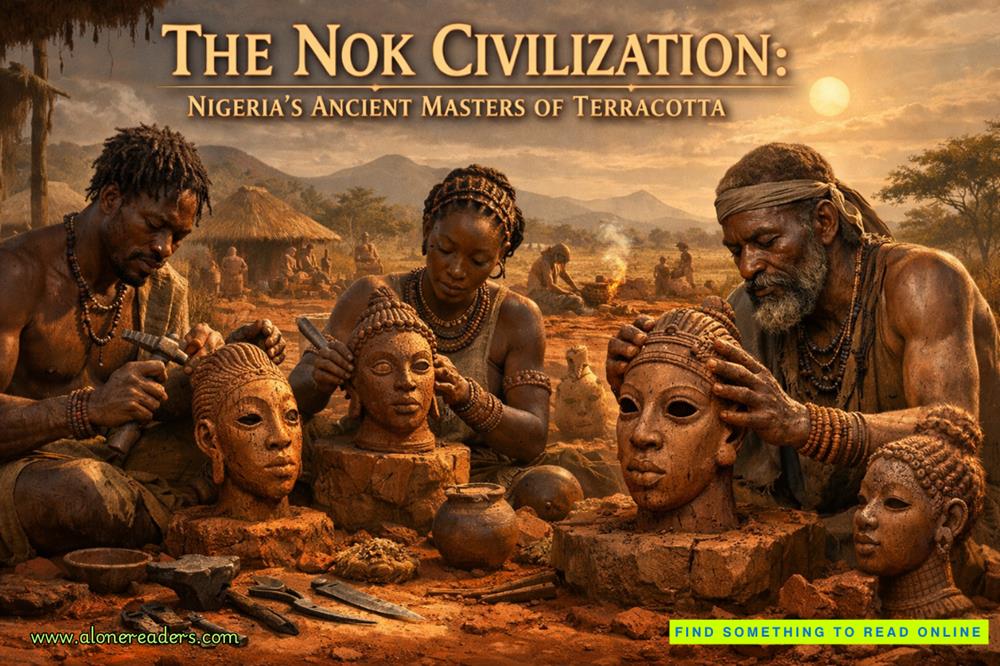Chapter One
Ihavealwayslovedghost stories. There is something about the New World that inspires such tales. Different languages and cultures thriving together in a wild, unexplored land tend to open one’s imagination. I have never considered myself to be weak-minded or prone to flights of fancy, however. I grew up in the city, with religious parents and formal schooling, and I was every inch the scholar my parents wanted me to be. It is with that advisory that I, Ichabod Crane, set my quill to paper to tell my own ghost story, though one that is entirely factual rather than simply a tale to thrill the mind. I admit that it hardly seems to have any bearing on reality, and, indeed, I would not believe it myself had I not experienced it, for it is a tale too fantastical for most minds to comprehend. But I assure you that every word of it is true. Henceforth, I commend to paper the story of Sleepy Hollow in 1790 and 1791, as I experienced it.
My arrival in Sleepy Hollow had come as a surprise to all, including myself. My boyhood had been spent in the settlements of Connecticut, where I was raised on a strict diet of religion while feasting on legends and folklore with an almost apostolic appetite. I was not a boisterous child. My family was one of reservation and respect. We were not wealthy, but I was able to attend school for several years and showed an aptitude for learning. My parents encouraged my education, for it was easier to be a man of business with a good head on one’s shoulders. In addition to math and science, I also learned history and literature, and I studied piano and singing, becoming quite the celebrated soprano in our local church in my youth.
My mother passed away when I was a lad of nine or ten, from childbed fever, and what would have been my younger sister, Nina, followed her to the grave. That left me in the charge of my father. He was a stern man, a man of business, for whom there was only one right answer and no excuses to be made. He had been a strict believer in the good book, until my mother left this earth. Then he seemed to lose his passion only for the will of God, finding renewed vigor at the bottom of a bottle. When drunk, he often went on zealous rants, forcing me to my knees to pray with him on the hard wood floor until I could hardly stand again. When I was able to finally escape from these long sessions of religious fervor, I retreated into reading and study. My rather prominent nose was quite often in a book. There were not very many available, even in our larger town, so every new book that I found was a rare and unexpected treat.
The time arrived when I had to decide what my path in life would be. The idea was presented of my becoming a traveling country schoolmaster. This seemed as good a career choice as any with my desire to see the world, as well as to escape my father’s rigorous bouts of religion. I was trained in all manner of schoolmastery, and then I was dispatched to Westchester County in New York. I had several short postings in various communities, finding small farming towns and outposts that needed instruction, but these were fickle, depending on the season and the desire of the inhabitants to withstand my presence. As such, I made my way along the Hudson and its various villages, carrying my meager belongings on my back.
In 1789, in the Greenburgh village of Tarry Town, I found an eager audience of young minds. I settled there for the winter and into the early spring of 1790. Indeed, I might have been happy to remain in that town for a long time to come, but the populations of such places are never as robust as the need, and I felt that it was drawing time for me to move on until a new generation of minds was ready for instruction. Upon asking the kindly family with whom I had been lodging what the nearest village to the north was, the look exchanged between the members was as if I might have asked where to find the lair of the Medusa, such was their horror and concern.
“There is nothing to the north,” said Van Houten, shaking his head so vehemently that his bushy, black beard shook like a berry thicket in a windstorm.
“Surely there must be,” I countered. “There is still part of Hudson left to travel, and much was settled before the war.”
Another exchange happened between the Van Houtens. “Beyond Tarry Town is a cursed place,” said good Madam Van Houten, a stout and dour matron whom I would have thought beyond such fancies. “No one who ventures into the glen returns.”
That was not the answer I had been expecting. “How many have ventured in recent times?” I asked.
“None from our area,” was the answer from Van Houten with a great snort. “Not since the end of the war, at least.”
“But there is a town in the glen?” I asked.
“Yes,” Van Houten said. “A single village, by the name of Sleepy Hollow.”
The name was unfamiliar to me, though it evoked a calm and peaceful reverie in my mind. “Then I shall travel to Sleepy Hollow,” I declared.
Both of the Van Houtens made a gesture in front of themselves like a priest drawing the sign of the cross. “Do not go,” Madam Van Houten said. “For the sake of your blessed mother and father, venture no further than our town, especially as the harvest draws near.”
That was probably the thing that drove my determination on like a team of charging horses, for while I was a quiet and reserved man, the desire to defy my father or any person of such authority was still strong in my breast. I was now more sure than ever that my time in Tarry Town was ending and that I would set out for Sleepy Hollow within a fortnight.
The morning of my departure, the townsfolk were as somber as a funeral procession, watching me make my way to the edge of the town through half-shaded windows and cracked doors. Before me stretched a swath of dark trees, and the dimly lit forest path almost gave me pause. But I was bound and determined not to show reluctance after my declaration that I was indeed moving on from Tarry Town, so I lifted my head high, shouldered my pack, and stepped out of the gates. A few dozen more paces, and I was at the edge of the forest. I could feel all eyes on my back, and I turned, lifting my hand in a farewell gesture to the town that had been so kind to me, before I stepped inside the line of trees.
The dimness was not as absolute as I had thought, the woods pleasant. The sun shone through the leaves, dappling my skin and the dirt road in front of me. It looked to be fairly worn from wagon wheels, and a few well-used paths branched off to the east at intervals. But the further north I walked, the more roughshod it became. More than once I caught my foot on a loose stone or hidden root; but despite my lankiness, I managed to keep myself upright until the path disappeared completely.
One moment there was a trail under my feet, and another step later, it was gone, as if an artist had drawn a line across a piece of paper. I turned back to see the path behind me. I was about to head into wild territory. For some reason, my heart picked up in my chest at that. I turned to look into the trees ahead of me again. It seemed a little darker here, with thicker overhang, so less of the late morning sunshine shown through, but it looked no different than the rest of the forest. I felt a little silly for suddenly feeling fear over something as simple as trees and a road ending. If I were to turn back now and return to Tarry Town, I felt I might not be able to live with the shame. So I lifted my chin and continued ahead.
The trees grew denser, the light dimmer, for a bit, and I became a little nervous that I might lose my way, but my steps remained confident. I was glad to be in these woods during the daytime. For while my upbringing had been filled with religion, that did not preclude me from all manner of superstitions and beliefs in the supernatural, gleaned from my many years of reading and talking with the various inhabitants of my hometown during my childhood. One does not usually see anything more frightening or unexpected than an errant rat in the city. Perhaps a corpse washing up on the river bank once in a great while, or some poor soul beaten to death in a dark street, but ghosts and goblins were the stuffs of country folk and their bucolic lives, not those of city-dwellers.
I was ruminating on this before I caught a glimpse of brightness through the trunks. I pressed on toward it, my steps picking up a little until I reached the very edge of the tree line. The world I stepped into was beautiful. A sea of golden grain and brightly colored garden plots lay before me on one side, and a field of gorgeously waving corn stalks on the other, with several quaint, Dutch-inspired houses scattered about, bright reds and whites as perfect as any painting. The grass beneath my feet was the brightest green, the sky a most generous shade of blue, the clouds bright and silvery. Very far over the hills on every side, I could see the forest, stretched out like a dark sea around this stunning hamlet of color. My feet gave an involuntary little hop as I strode out of the coolness of the woods and into the early afternoon sunlight.
A little path began to form under my feet again as I walked toward the town that I assumed must be Sleepy Hollow. I followed it, and it gradually became more rutted and wagon-worn. The corn to my right rustled, and I jumped as a man emerged from the field onto the road. His face was shielded by the sun, and he carried a sharp-looking sickle over his shoulder. When he saw me, he stopped dead in his tracks, mouth agape. I stared back at him before lifting my hand in salutation. “Hello. I am Ichabod Crane, the traveling schoolmaster for this area. Might this glen be the village of Sleepy Hollow?”
The man continued to stare, so much so that I wondered if perhaps he was deaf, before he pulled his straw hat from his head to squint at me. “Ah, sure is, good master. Ichabod Crane, you say?”
“Yes, sir,” I said, giving a polite bow.
He scratched his bristly chin thoughtfully with his thumb. “Traveling schoolmaster. It has been a while since we’ve had one of those.”
“Do you have need of one then?” I asked, and his face broke into a wide grin.
“We do, we do. Welcome, Master Crane! Ezra Brouwer. Might you be heading into the square?”
“Wherever I may speak with the leader of the town,” I said.
“That would be Baltus Van Tassel,” Ezra said, scratching at his stubble again. “He lives all the way at the other end of the hollow through the woods. But I was about the head into the main village anyway, you’re welcome to come along.”
I was eager to rest my aching feet, so I eagerly hopped into his wagon that sat in front of his little cottage. “Is there only one road into Sleepy Hollow?” I asked, surveying the area from my higher perch and finding no other breaks in the fields around me.















